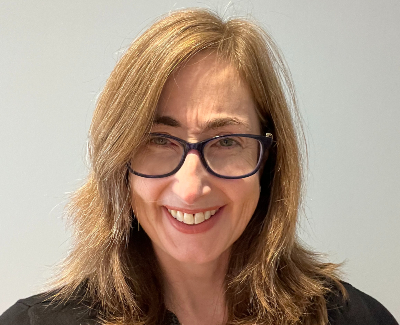By Jenna Somers
Jennifer Russell, professor of leadership, policy, and organizations, is leading a three-year grant program to establish the Improvement Scholars Network (ISN) as an independent professional association aimed at fostering collaboration among scholars and professionals in the education field. The association will focus on advancing innovation and improvement in districts, schools, and communities supporting the development of historically marginalized children and youth. This work is funded by the Gates Foundation.
As a professional association, the ISN will elevate the prominence of improvement research as a growing academic field among the broader education research community. According to the ISN’s handbook, improvement research is a “two-way street,” where researchers and practitioners work alongside one another through a continuous, iterative process to co-design, test, and improve educational organizations and methods. In the field of education research, this approach is distinct from the more common “one-way” model of producing research that is then translated into practice.
The ISN will be headquartered at Vanderbilt Peabody College of education and human development and serve as a “big tent” for school improvement researchers and practitioners. Accordingly, the ISN welcomes affiliates of research-practice partnerships, networked improvement communities, research alliances, and similar organizations. The ISN builds on the strong foundation for improvement research at Peabody established by such earlier initiatives as the Middle-school Mathematics and the Institutional Setting of Teaching (MIST) project and the National Center on Scaling Up Effective Schools.

“We like to say that the Improvement Scholars Network is a community of practical scholars and scholarly practitioners advancing improvement research and continuous improvement in academic, practice, and policy contexts,” said Russell. “Through various approaches, we aim to focus on educational opportunities, needs, and problems of practice that are consequential for local educators. We center equity both as a goal and throughout the process of our work, so that educators and students have voice in articulating the challenges they face in the educational space.”
“The power of the Improvement Scholars Network is that it is a home for researchers and educational professionals who use diverse approaches to continuous improvement to address educational needs, problems, and opportunities that they see as consequential in specific local contexts,” added Don Peurach, professor of educational policy, leadership, and innovation at the University of Michigan and co-director of the ISN with Russell.
Over the next three years, Russell, Peurach, and the ISN Collaborative Leadership Board will pursue five primary outcomes:
- Grow and strengthen the ISN as an organization through formalizing an organizational structure and expanding membership, building a communications infrastructure, and analyzing the current field of improvement research, including approaches and scholars in the field.
- Explore the interdependence between improvement research and program evaluation to expand the inclusion of improvement research in evaluation plans. The team will conduct an interview-based study with program evaluators who have experience with improvement research, as well as convene meetings with the evaluation community to develop a joint statement.
- Expand the presence of improvement research in higher education institutions by supporting institutions to prepare educational leaders—through master’s and Ed.D. programs—to engage with improvement researchers and lead continuous improvement initiatives as practitioners. The ISN also seeks to work with institutions to diversify the field and offer coursework in improvement research methods for aspiring improvement scholars in Ph.D. programs.
- Develop an infrastructure that connects the academic and practitioner communities, including through the creation of a professional learning ecosystem that shares resources and access to professional learning opportunities, as well as communities of practice focused on widely shared problems of practice. They also plan to connect researchers and practitioners to funding opportunities.
- Build a strategy for engaging with key policy stakeholders, including developing a joint policy statement on the role of improvement research in the education field and hosting a meeting between ISN leadership and key policy stakeholders.
The ISN was initiated with support from the Carnegie Foundation for the Advancement of Teaching. The network currently includes about 500 members. Scholars and practitioners interested in joining and learning more can visit the ISN website and complete the membership form.
Jennifer Russell teaches in the K-12 and higher education leadership and policy Ed.D. program and the leadership and policy studies Ph.D. program.